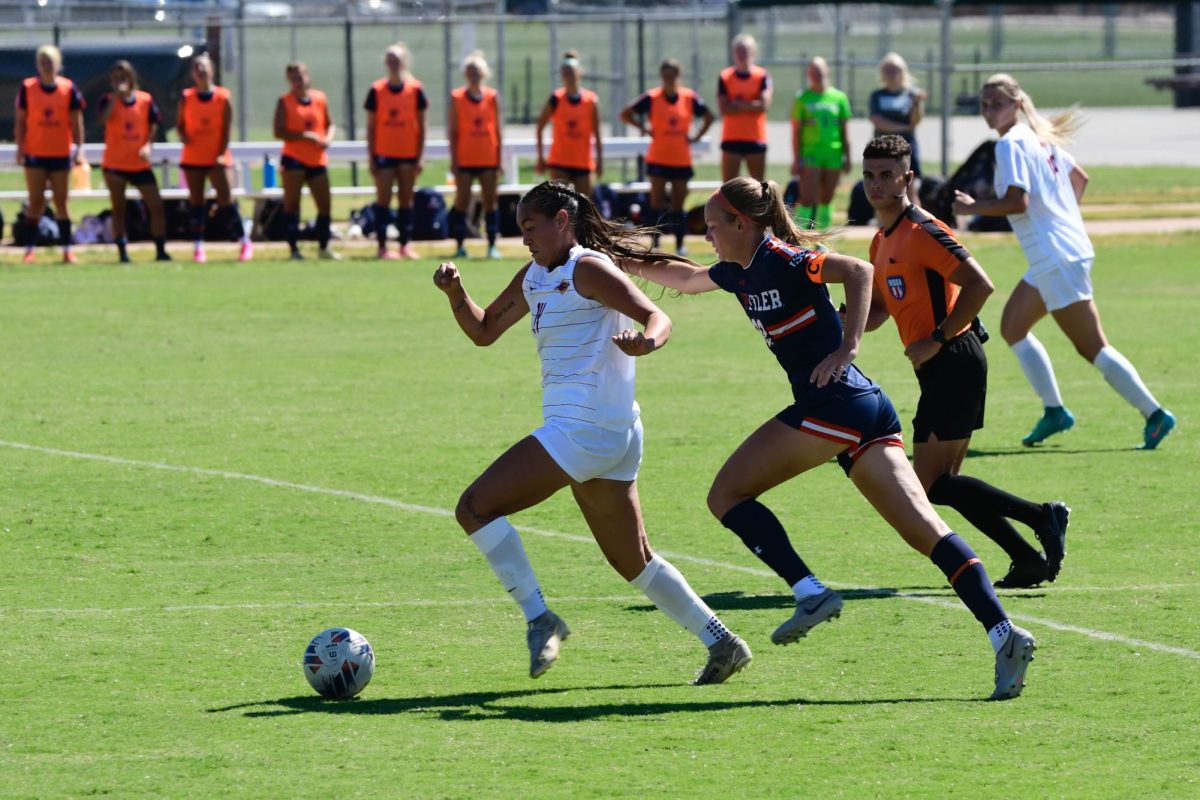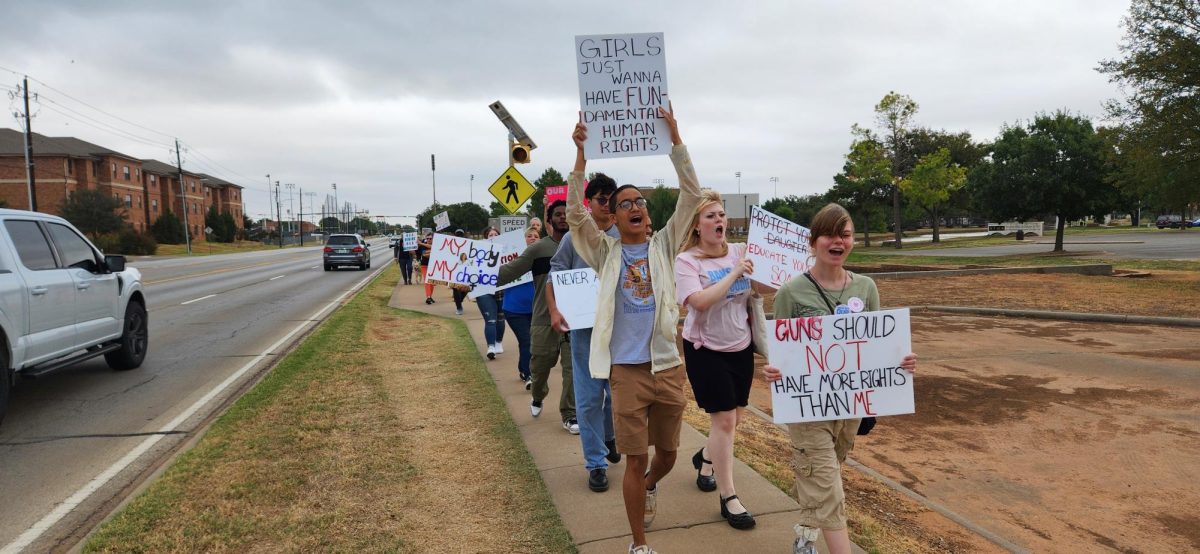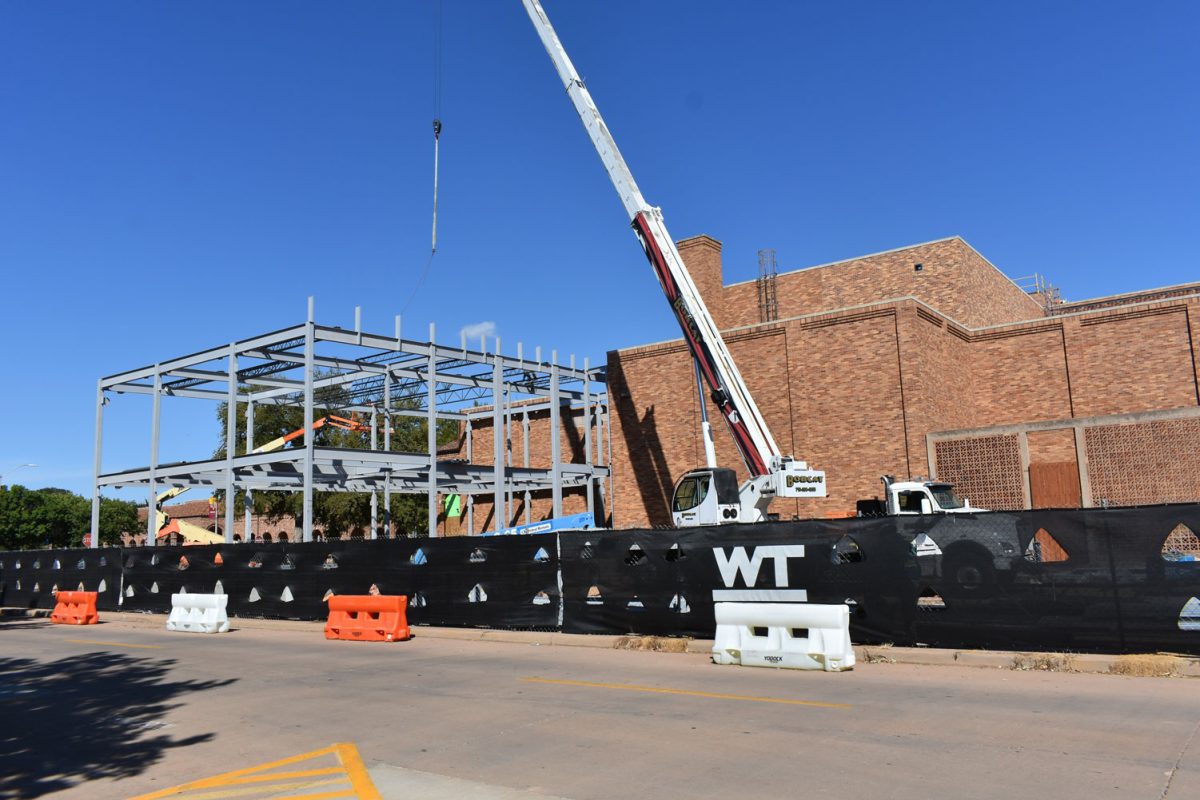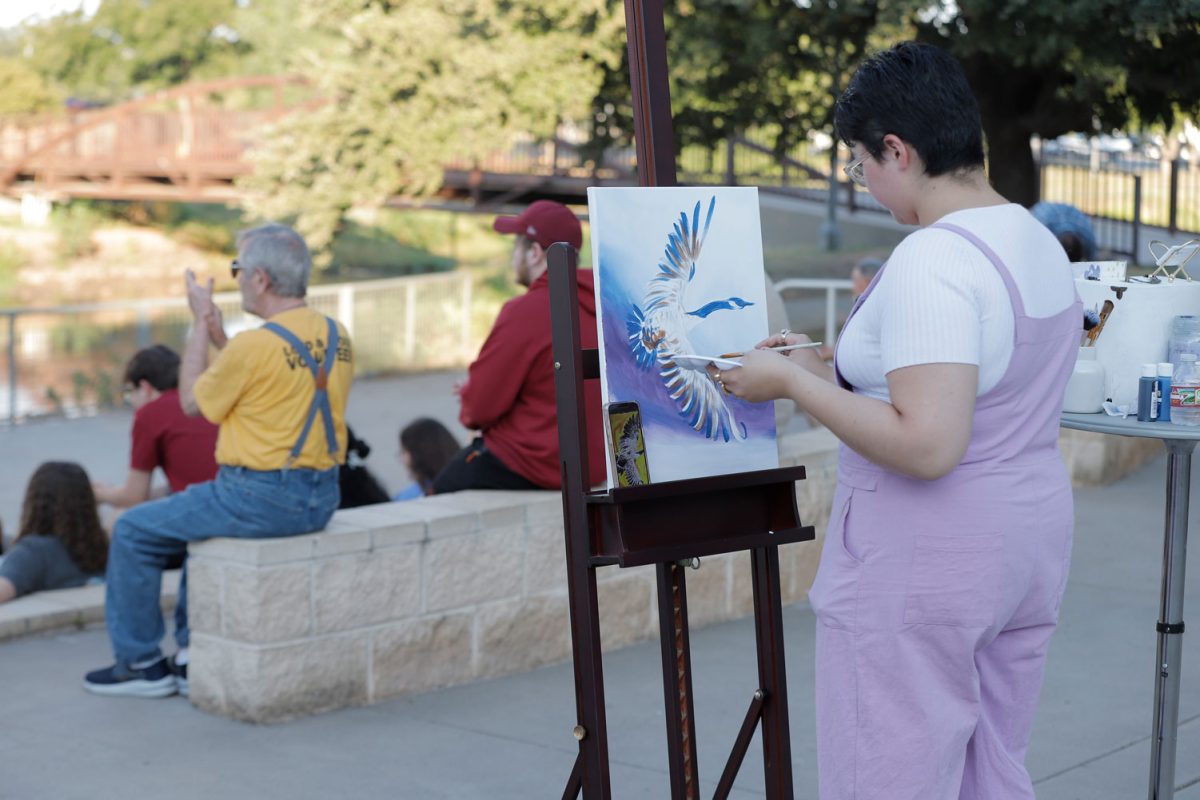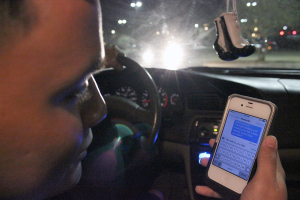
Every day the Hardin Tower bells ring as students hurry to their next class or try to beat the lunch rush in the cafeteria, and while the campus is increasingly becoming a resident campus, there are still a large number of commuter students which means one important thing—there are a lot of cars, too.
And while smartphones have made it easier to keep up with the hustle and bustle of college life, they also can lead to problems. It’s common to see a driver talking on the phone or texting while behind the wheel, but university police Sgt. Albert Jimenes said there is little authority to ticket people who text while driving.
“Right now, there is no way to regulate cell phone usage while driving here on campus. It is only a city ordinance to be ‘hands free’ in elementary and middle school zones,” Jimenes said. “Even though we are considered a school zone, we don’t fall under that law or have the jurisdiction to enforce it.”
But a new bill in the Texas legislature could change that. If it passes, Texas House Bill 80 would make texting behind the wheel of a car a misdemeanor offense, even when stopped at a red light. The first offense is a $25-$99 fine, with each subsequent infraction resulting in a fine between $100-$200.
Jimenes said the university police will enforce the bill if it becomes law, which would go into effect Sept. 1, 2015.
“It’s for the best and for their protection. With the new construction opening up the campus, we have so many students walking around. Taking your eyes off the road for one second can be dangerous,” Jimenes said.
So far, there has not been any major damage reported involving anyone texting and driving on campus, but Jimenes said it is not a matter of if it will happen, but when.
“We do not encourage it, and we tell students to stay off the phone while driving during student rallies,” Jimenes said.
According to the Texas Department of Transportation, one-fifth of accidents are due to distracted driving. Cities like Denton, Grand Prairie, Austin, and San Antonio have ordinances prohibiting texting while driving. Dallas and Houston do not have such protocols.
Robbie Dunkelberg, social work junior, said she visited Austin over spring break and saw what it’s like driving in a hands-free city. She noticed that no one was talking or texting on the roads.
“It was kind of nice because usually you get those idiots that will be on their phone, and pretty much almost run into you,” Dunkelberg said.
The ban on texting and driving in Austin went into effect the first day of 2015 and includes cyclists as well.
“I didn’t know it was officially ‘hands-free’ until my friend’s mom told us that we couldn’t be on the phone while driving or you can get a ticket for it,” Dunkelberg said. “It’s for the better, even though I’m guilty myself. But I definitely think it’s a good idea because I’ve had cars almost run into me and I’ve even almost had a run in.”
According to House Bill 80, it will be considered an offense for any driver to use “portable wireless communication to send text-based communication.” This includes SMS text, e-mail and instant messages. If connected to Bluetooth, drivers will still be allowed to use navigation systems, and receive phone calls as long as they are hands-free.
“If I happen to be on the phone while driving, it’s for something quick,” said Ace Elliot, management freshman. “I’m letting them know that I’m on my way, or calling to say I’m going to be a few minutes late to work, or maybe getting directions. Sometimes you need to tell someone something important. People have children, high demanding jobs, and emergencies happen. My car doesn’t have Bluetooth, that’s not an option for me right now.”
This is the third bill filed in the Texas House of Representatives related to distracted driving by Rep. Tom Craddick, R-Midland. Gov. Rick Perry vetoed the first in 2011. The second died in the 2013 Senate Committee.
Will Winkler, radiology senior, has been a cyclist for 10 years. A bicycle used to be his only form of transportation, until recently. Winkler was once hit by a car while riding his bike, by someone that was not even on their phone. They just didn’t see him.
“So how much easier would it be for somebody focused on their phone, instead of driving, to still hit me,” Winkler said. “I constantly notice that people are on their phones. I notice it so much more whenever I’m riding my bike because I have more time when I’m sitting at intersections to pay attention to it. Talking and driving, texting and driving, looking down, you know, the whole nine yards.”
Winkler said. “It really scares me. My number one fear is I’m just going to be riding my bike somewhere, even on a sidewalk or through a parking lot, and someone is just going to run me over.”
Since he has had his vehicle, Winkler tries not to get on his phone at all while driving.
“There is the temptation to get on my phone, but being a cyclist, since that’s my big fear, I don’t like doing that because it’s a distraction. I know it only takes like a fraction of a second to run over somebody,” Winkler said. “And I don’t want to ruin my new car, or go to prison.”
Winkler said he agrees that there should be a ban on cell phones while driving, should the law go into effect.
“With that kind of deterrence, it makes people more aware of what they are doing,” Winkler said. “I mean, nobody wants to pay the ticket, and, yes, some people complain it infringes on their rights. But, at the same time, it’s also for their safety.”
Getting a break from cell phones in the car isn’t only about protecting Texas drivers, Winkler said.
“It’s healthy for people to just not feel addicted to their phones. I mean, for you to have the ability to go, ‘Oh, I got a text message, I just heard it go off, but that’s OK because I can wait 10 minutes to answer it,’ and not have to drive around looking up and down just to reply,” Winkler said.
Texas Department of Transportation Cell Phone Prohibitions
• Drivers with learners permits are prohibited from using handheld cell phones in the first six months of driving.
• Drivers under the age of 18 are prohibited from using wireless communications devices.
• School bus operators are prohibited from using cell phones while driving if children are present.
• In school zones, all drivers are prohibited from texting and using handheld devices while driving.











